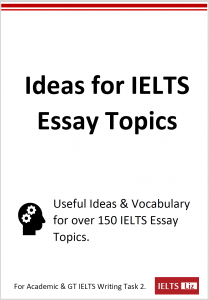Questions, Answers & Transcript: Blue-footed Bird Listening Practice
Do not look at the answers until you have finished the listening lesson.
If you have not finished this listening lesson, please click here: Blue-footed bird listening practice
Transcript:
These boobies live off the western coasts of Central and South America. The Galápagos Islands population includes about half of all breeding pairs of blue-footed boobies. They are aptly named, and males take great pride in their fabulous feet. During mating rituals, male birds show off their feet to prospective mates with a high-stepping strut. The bluer the feet, the more attractive the mate.
All half-dozen or so booby species are thought to take their name from the Spanish word “bobo.” The term means “stupid,” which is how early European colonists may have characterized these clumsy and unwary birds when they saw them on land—their least graceful environment.
Like other boobies, blue-foots nest on land at night. When day breaks, they take to the air in search of seafood, sometimes fishing in cooperative groups. They may fly far out to sea while keeping a keen eye out for schools of small fish, such as anchovies. When their prey is in sight, these seabirds utilize the physical adaptations that make them exceptional divers. They fold their long wings back around their streamlined bodies and plunge into the water from as high as 80 feet. Blue-footed boobies can also dive from a sitting position on the water’s surface.
Blue-footed boobies also use their webbed feet to cover their young and keep them warm. When a typical brood of one to three chicks hatch, both parents feed and care for them.
It is a good idea to read the transcript and listen to the recording at the same time. Below:
.
Questions: No more than two words and/or a number.
- Strutting and showing off feet is part of the mating …………
- When a male boobie has very blue feet, he is considered ……………..
- Their name comes from the Spanish word for …………..
- On land, blue-footed boobies move in a ………. manner.
- Blue-footed boobies fish in ……………….
- They eat small fish, for example ………….
- Their bodies are ……….. which is advantageous when diving.
- Adult boobies warm their chicks with their ……………….
- They usually have a maximum of ………. young.
Answers:
- RITUAL / RITUALS
- You can have either plural or singular for this answer. It isn’t common that you can have both – usually in IELTS you must choose carefully and writing the wrong one will mean it is marked wrong.
- ATTRACTIVE
- STUPID
- “to take their name from the Spanish word “bobo.” The term means “stupid”.
- This question is really testing your ability to spot the words “this term means…” We use this phrase when using a foreign word in an English communication and we wish to explain in English.
- The question “Their name comes from the Spanish word for …………..” means that you are listening for the English translation, not the Spanish word. This is again a test of your English to understand “the Spanish word for…” which means a translation.
- CLUMSY
- GROUPS / COOPERATIVE GROUPS
- Some people had difficulty with the pronunciation of “in cooperative groups”. This is due to the pronunciation features of linking sounds.
- ANCHOVIES
- STREAMLINED
- FEET / WEBBED FEET
- THREE / 3
- Notice that the question asks for the maximum number. Always underline key words in the question on your listening question paper.





